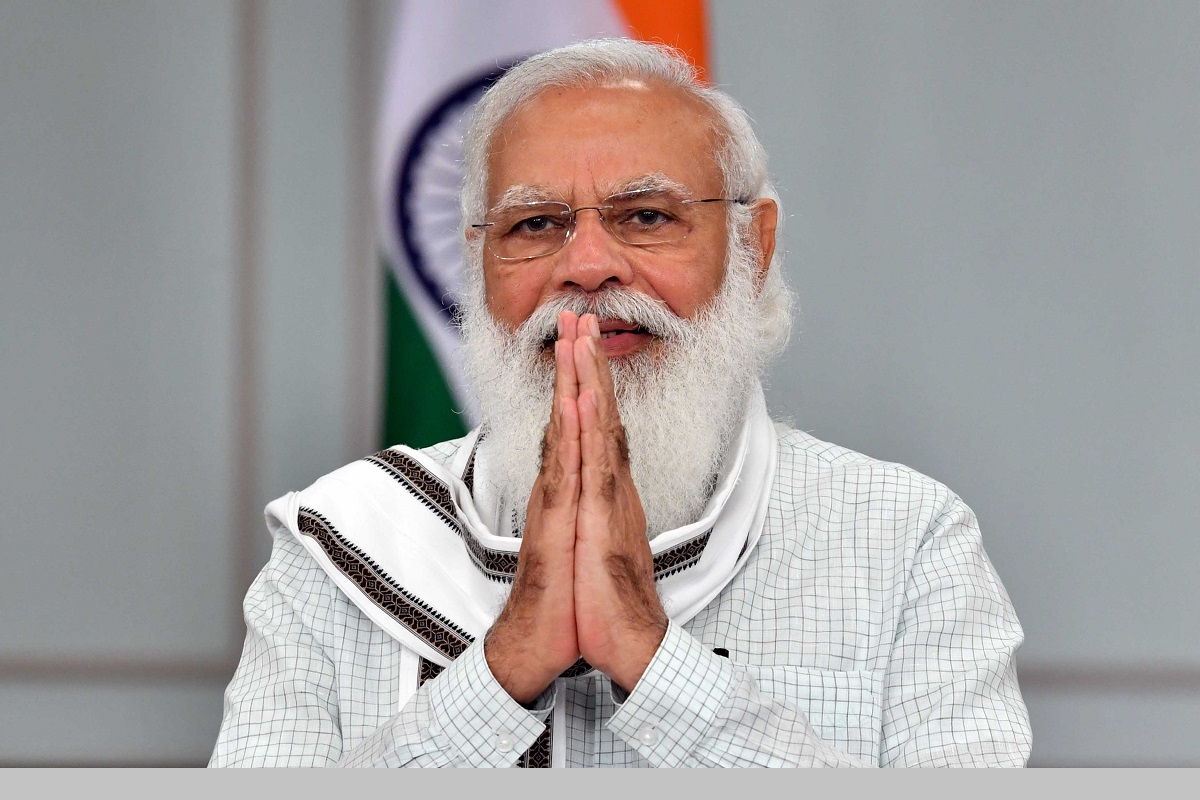Assam’s grand Jhumoir show: 8,000 performers, PM Modi to attend
Assam’s Jhumoir Binandini event on February 24 will feature over 8,000 performers showcasing the traditional Jhumoir dance at Sarusajai Stadium, Guwahati.
Underlining India’s leadership in information technology and fintech, the PM stressed that there could not be a better time to introduce more power of technology to judicial proceedings.

File photo
Prime Minister Narendra Modi today renewed his appeal for showing sensitivity towards undertrial prisoners and asked the District Legal Services Authorities (DLSAs) to take up the responsibility of providing legal aid to such prisoners.
He also appealed to district judges, as chairpersons of undertrial review committees, to expedite the release of undertrial prisoners and urged the Bar Council to encourage more lawyers to get involved in this campaign.
Advertisement
The PM was addressing the inaugural session of the 1st All India DLSAs meet here. He had made a similar appeal exactly three months back while speaking at a joint conference of chief ministers and chief justices of high courts. Today’s function was attended, among others, by Chief Justice of India Justice N V Ramana, Supreme Court judges, and Union Law Minister Kiren Rijiju. Modi also released a commemorative postal stamp on the ‘Right to Free Legal Aid’.
Advertisement
Modi noted that this was the time of ”Azadi ke Amrit Kaal”, adding this was also the time for the resolutions that would take the country to new heights in the next 25 years. ”Like Ease of Doing Business and Ease of Living, Ease of Justice is equally important in this Amrit Yatra of the country,” he said.
Modi highlighted the place of legal aid in the Directive Principles of the State Policy. This importance was reflected in the faith of the citizens in the Judiciary of the country. He said Justice delivery was “as important as access to the judicial system is for any society.” The judicial infrastructure also has an important role to play in this regard. In the last eight years, work has been done at a faster pace to strengthen the judicial infrastructure of the country, he added.
Underlining India’s leadership in information technology and fintech, the PM stressed that there could not be a better time to introduce more power of technology to judicial proceedings.
“Under the e-Courts Mission, virtual courts are being started in the country. Twenty-four-hour courts have started functioning for crimes like traffic violations. Video conferencing infrastructure is also being expanded in the courts for the convenience of the people,” he said.
The PM said that more than one crore cases have been heard through video-conferencing in the country. This has proved that “our judicial system is committed to the ancient Indian values of justice and, at the same time, is ready to match the realities of the 21st century.”
He further emphasised that “a common citizen should be aware of his rights and duties in the Constitution. They should be aware of their Constitution, and Constitutional structures, rules, and remedies. Technology can play a big role in this too.”
Reiterating that ”Amrit Kaal” was a period of duty, the PM said the nation has to work on the areas that have remained neglected so far.
The two-day first-ever national level meet of DLSAs will deliberate on the creation of an integrated procedure in order to bring homogeneity and synchronisation across DLSAs. The DLSAs also contribute towards reducing the burden on courts by regulating the Lok Adalats conducted by NALSA.
Advertisement